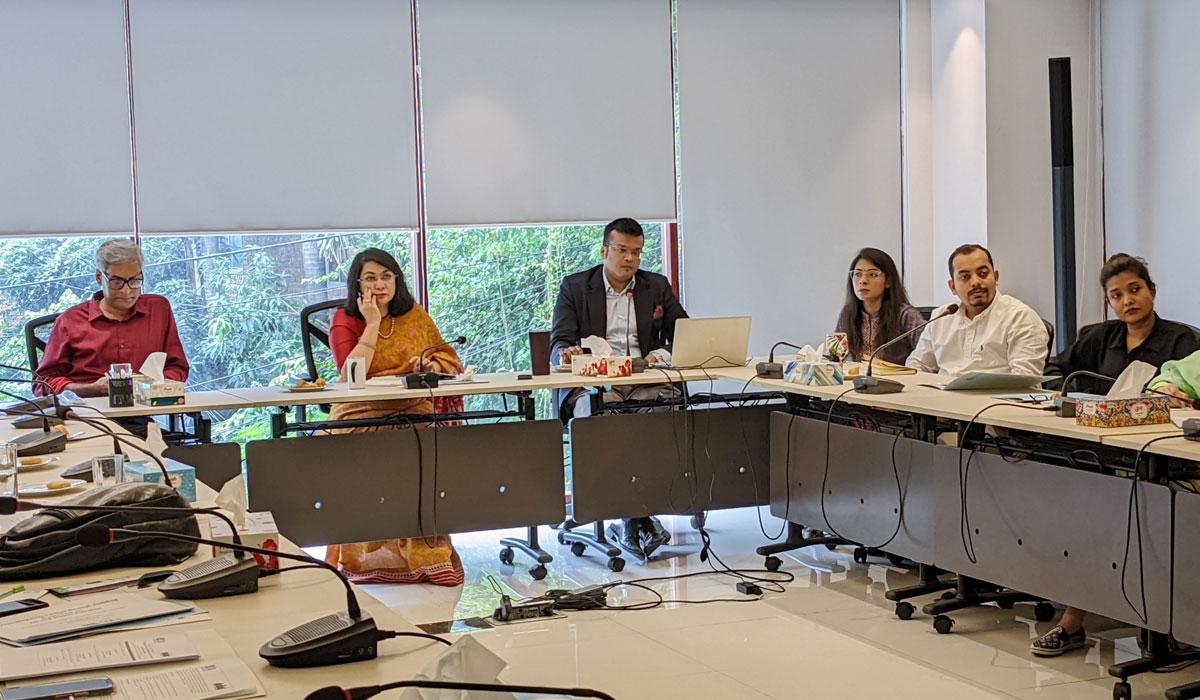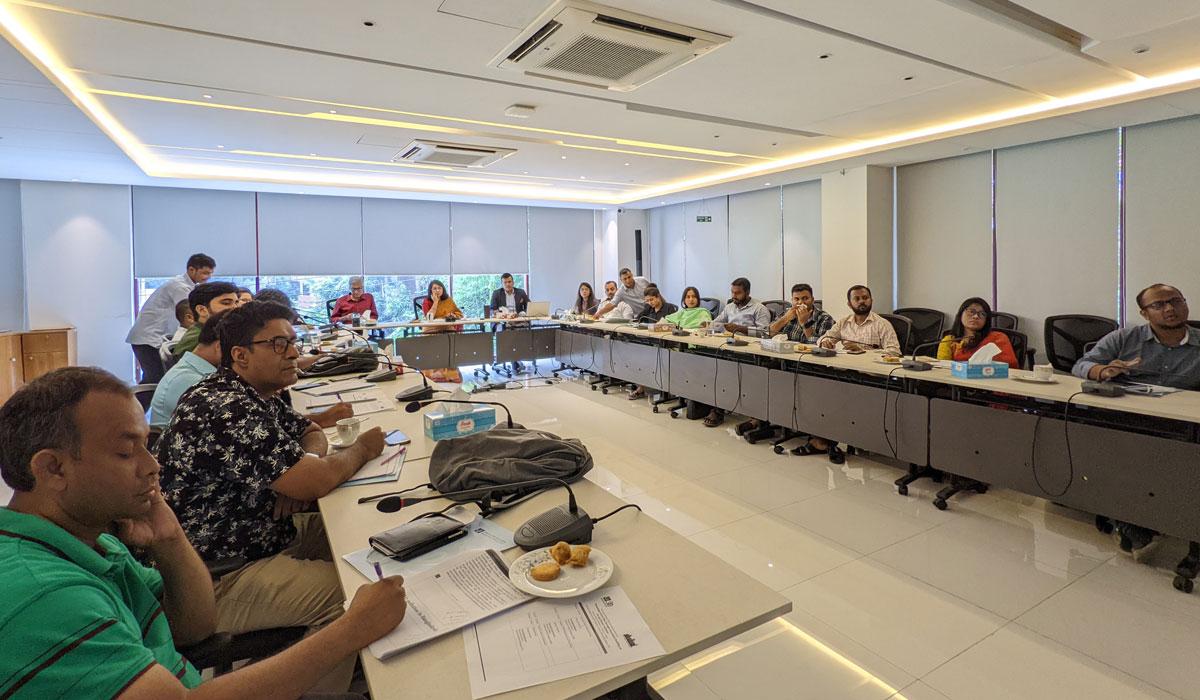
The media has substantial power to bring forth pressing environmental concerns such as air and plastic pollution into the limelight of public and political discourse and thus magnify their significance in policy debates. Moreover, media not only have the power to shape public perception but also can help influence the policymakers and their understanding of air and plastic pollution by highlighting the major health, environmental, and economic consequences. In this regard, the Centre for Policy Dialogue (CPD), as part of its Green Cities Initiative, arranged a knowledge sharing workshop titled “Promoting Green Cities through Awareness Building on Air and Plastic Pollution” on 9 July 2023, to equip journalists in Dhaka with the knowledge and skills necessary to report on air and plastic pollution in the city.
During the opening remarks, Dr Fahmida Khatun, Executive Director, CPD, began by emphasising the concerning levels of environmental pollution in Bangladesh and how significant its intensity has become, especially regarding risks to human health and threats to biodiversity.
‘It is often seen that Dhaka is among the top cities to have persistent levels of air pollution which is quite concerning’, said the Executive Director. Although air pollution is reported more often, plastic pollution is also an underlying issue that requires equal attention.

Dr Fahmida Khatun also underscored that the government had imposed a ban on the use of polythene bags, yet the policy lacked adequate implementation. Furthermore, plastic products are continuously being used and thrown away at the consumer level which further adds on to the level of plastic pollution in urban areas. Therefore, it is important to not only conduct research on such emerging issues but to also create a dialogue with the media to help raise awareness on such environmental matters.
In his keynote presentation, Mr Syed Yusuf Saadat, Research Fellow of CPD, highlighted the role of the media in building awareness and said ‘Through consistent media coverage of air pollution and plastic pollution stories, the journalists have the power to bring these pressing issues to the forefront of public and political discourse, thereby amplifying their significance in policy debates’.
Amidst the open discussion, the journalists expressed concerns about the lack of data availability, specifically mentioning that the Department of Environment (DoE) typically reports on the air quality index after a 24-hour delay, rendering it irrelevant for the public on the next day. One of them proposed that increasing understanding about the health impacts of air pollution could be an effective way to raise awareness among the public. The discussants agreed on the importance of raising awareness on a larger scale to address air and plastic pollution. As many people might not find the environment to be an important issue, it was also suggested that if the citizens of Dhaka city were more aware of the health and economic consequences associated with air and plastic pollution then perhaps real behavioural change could be observed.
During the discussion, the journalists also highlighted some of the key solutions to plastic and air pollution. It was stated that if landfills had a solid waste treatment plant, then perhaps they would be able to manage the waste more effectively which could reduce plastic pollution. With the increasing affordability and usability of plastic, people do not bother to carry their own shopping bags while visiting the groceries and small tea stalls offer single use cups — a practice which has developed over time and was not quite there in earlier years. Furthermore, the journalists recommended that paying waste collectors a higher wage and providing them with proper safety equipment could also encourage proper waste management. Plastic pollution is now not only an urban concern but has permeated its way to rural areas as well. Currently, in Bangladesh there are only a few designated media outlets that specifically report on pollution and environmental matters. Hence, there is a scope to increase dedicated reporting on pollution and environmental matters.
The discussion also highlighted that while brick kilns may be the greatest source of air pollution, construction sites are also on equal par as a major source of air pollution. Especially, during the construction of the Metro Rail and the elevated highway, air pollution became significantly worse.
Additionally, the journalists emphasised the need to establish a dedicated authority comprising environmental experts and policymakers actively involved in government projects, who possess comprehensive knowledge of the impacts and effects of environmental pollution while maintaining transparency in data collection and dissemination. The journalists mentioned that the concern of air and plastic pollution are being reported for the last three to four years in Bangladesh. However, because of lack of updated data and in-depth research, they cannot report on these issues regularly. Drawing from their experience of working on environmental issues for an extended period, they highlighted how journalism contributed to curbing deforestation in Sylhet in recent years. Finally, they urged private organisations and non-governmental organisations to conduct further research on air and plastic pollution to facilitate more frequent reporting on these issues.
The workshop was attended by CPD researchers and journalists from both print and electronic media.

